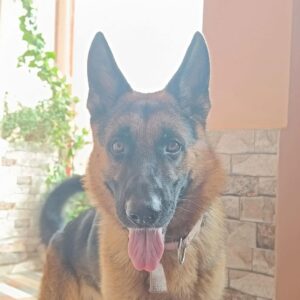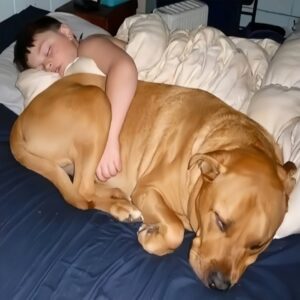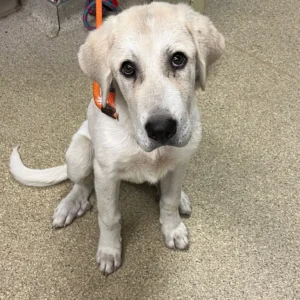When Bruno senses it’s walk time, his whole body turns into a celebration — tail wagging, paws skittering across the floor, eyes sparkling. But unlike most dogs, Bruno doesn’t respond to the word “walk.”
Bruno is deaf. His parents, Skye and Daniel Tibbetts of Stourbridge, England, tell him the news with their hands — signing “walk” in British Sign Language (BSL).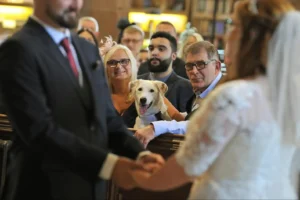
The moment Daniel makes the gesture, Bruno lights up. He bounds around the room, buzzing with anticipation. “He always reacts the same,” Skye says. “Sometimes, he’s more excited about getting ready than the actual walk.” In fact, midway through an outing, Bruno might decide he’d rather turn back and reclaim his spot on the sofa.
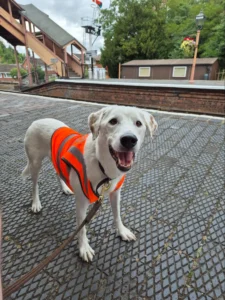
When the Tibbettses adopted him, they didn’t know Bruno couldn’t hear. Days later, they noticed his lack of response. They even tried speaking Spanish — since he was rescued from the streets of Spain — but still, nothing. A vet visit confirmed the truth: Bruno was deaf, possibly from birth, though he also had a severe ear infection when they found him.
Instead of seeing this as a setback, Skye and Daniel saw an opportunity. Both were already familiar with sign language — Daniel’s parents are deaf — so they began teaching Bruno. He caught on quickly, thanks to patience, treats, and his love of learning. Today, he knows signs for “give paw,” “stay,” “lie down,” “roll over,” “spin,” “play dead,” and more.

Bruno thrives on touch and eye contact, leaning into affection with a goofy, clumsy charm. But his easygoing sweetness wasn’t always there. Early on, he was defensive, knocking over bins and guarding his food. “He just needed patience and safety,” Skye says. “That’s when we met his real, loving personality.”
Since then, Bruno has been more than a pet — he’s been family. He’s stood beside Skye and Daniel through milestones, even carrying the rings at their wedding.
“Bruno is a massive part of our lives,” Skye says. “Everyone should know the loyalty and love of a good dog.”

